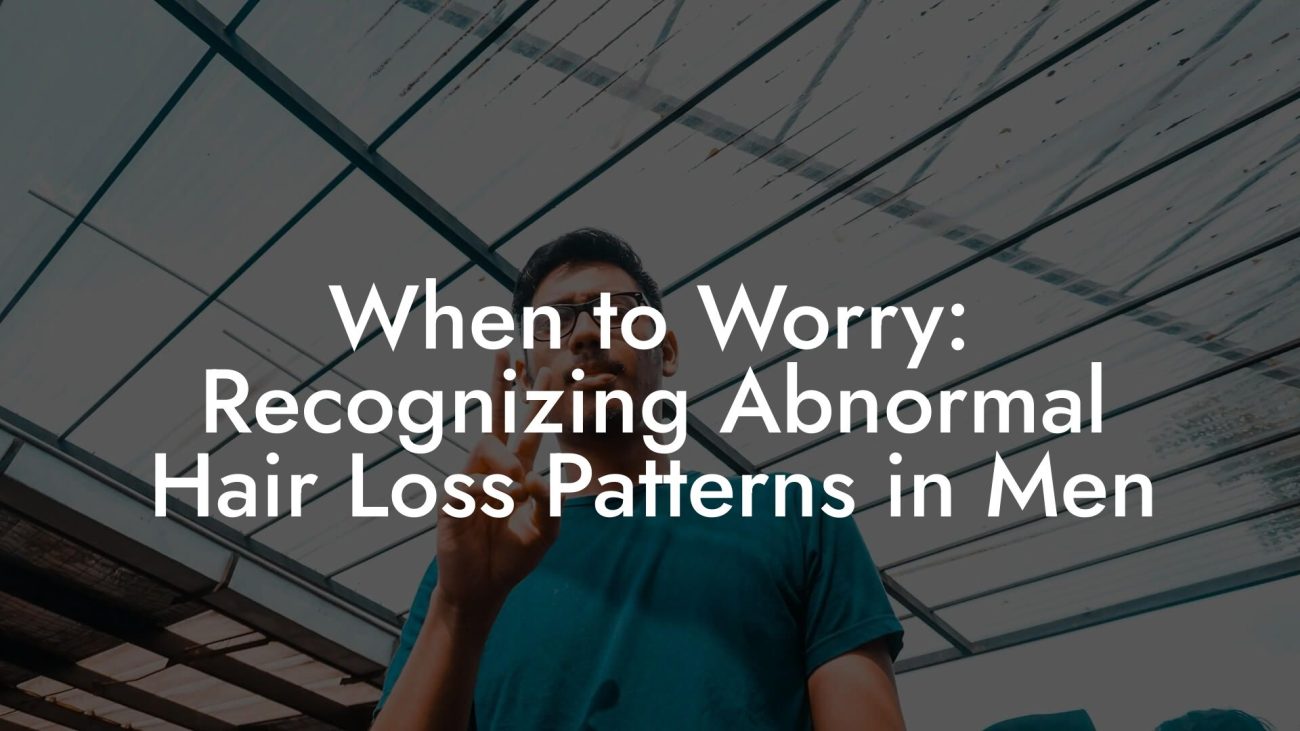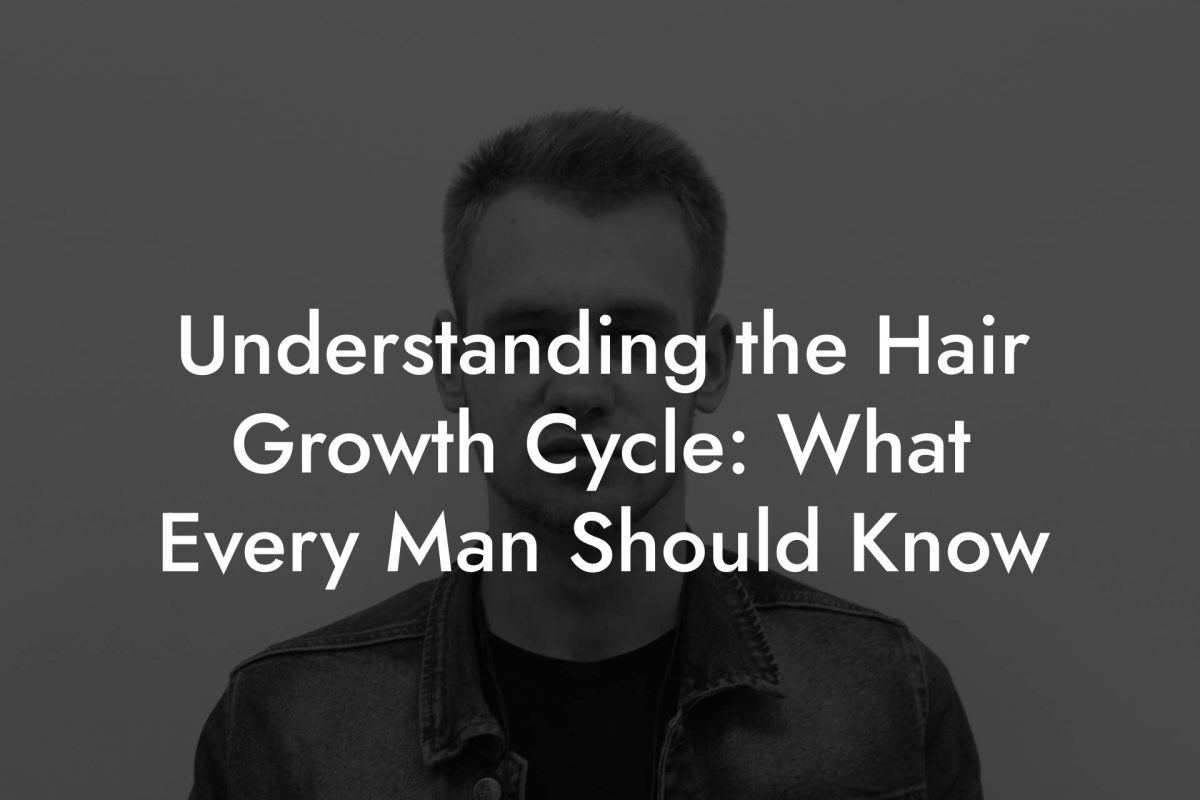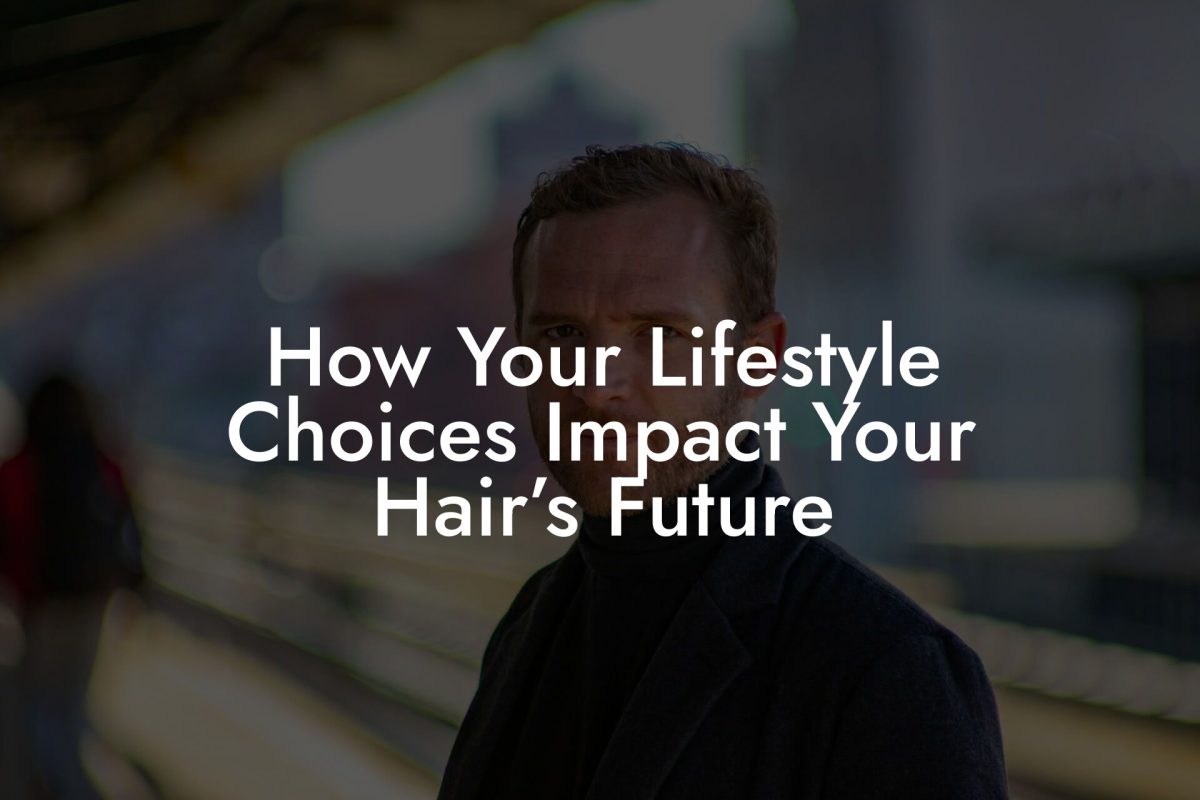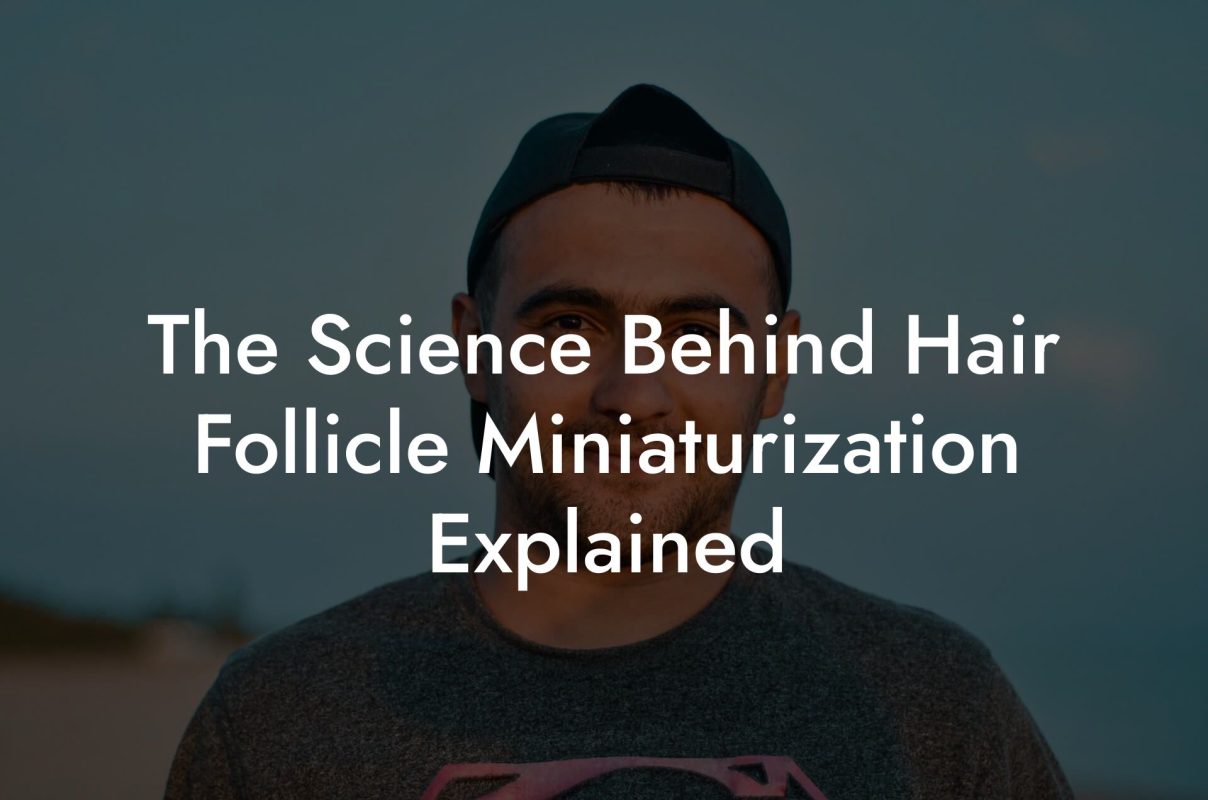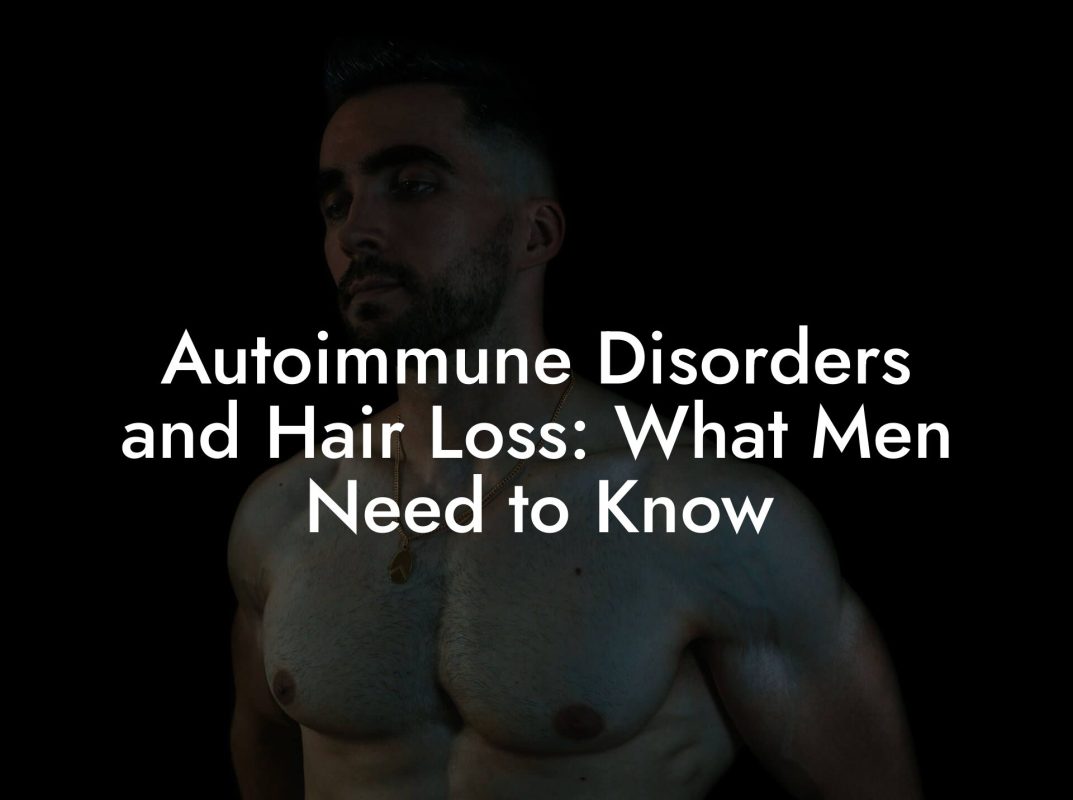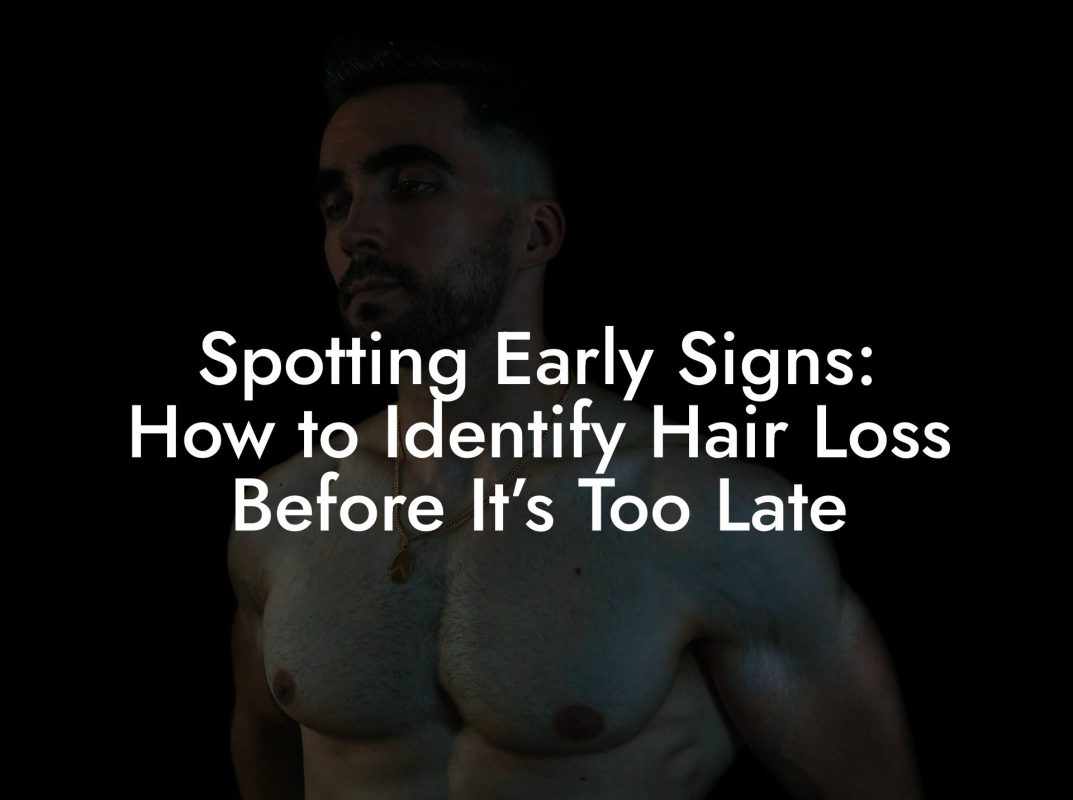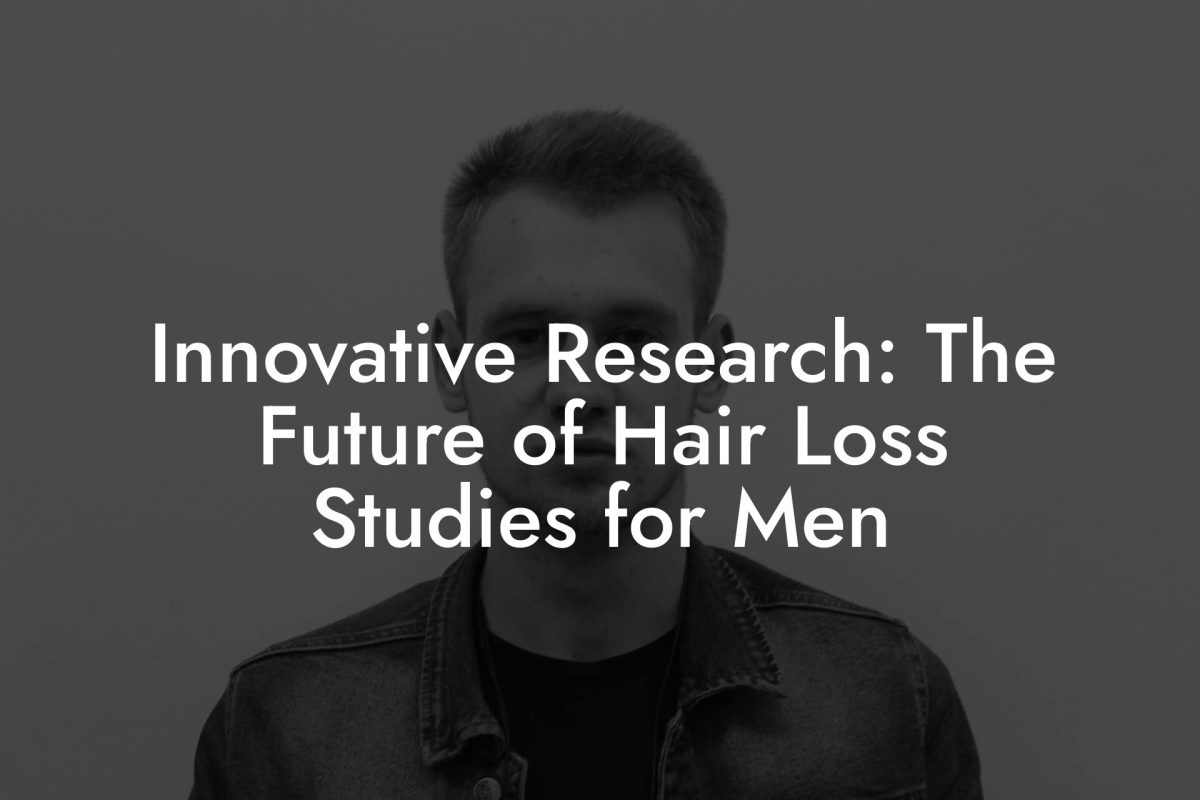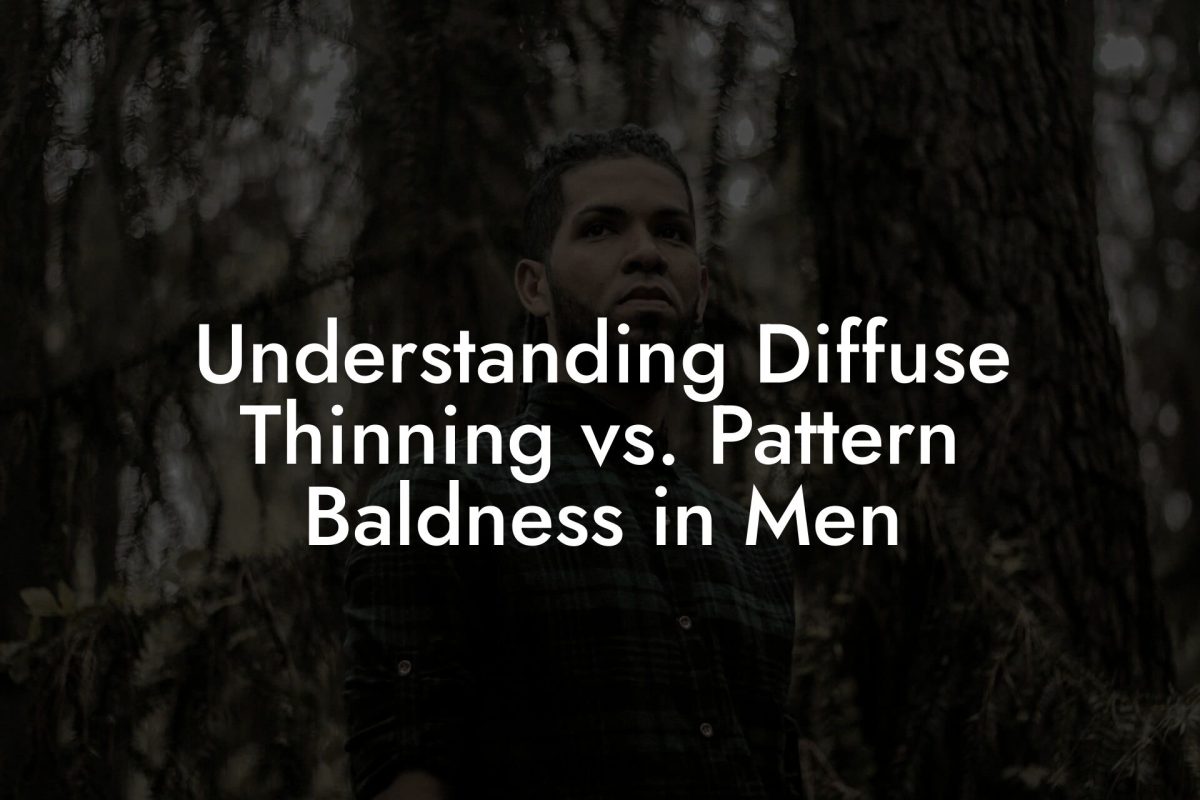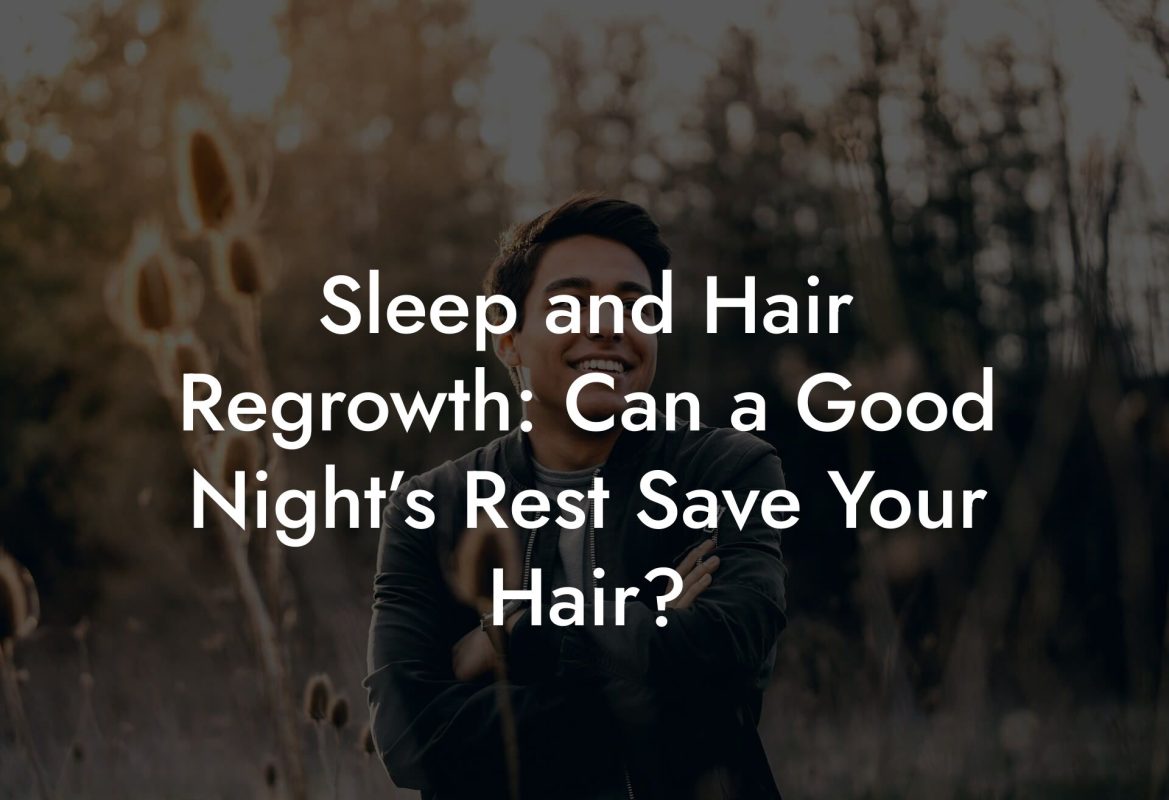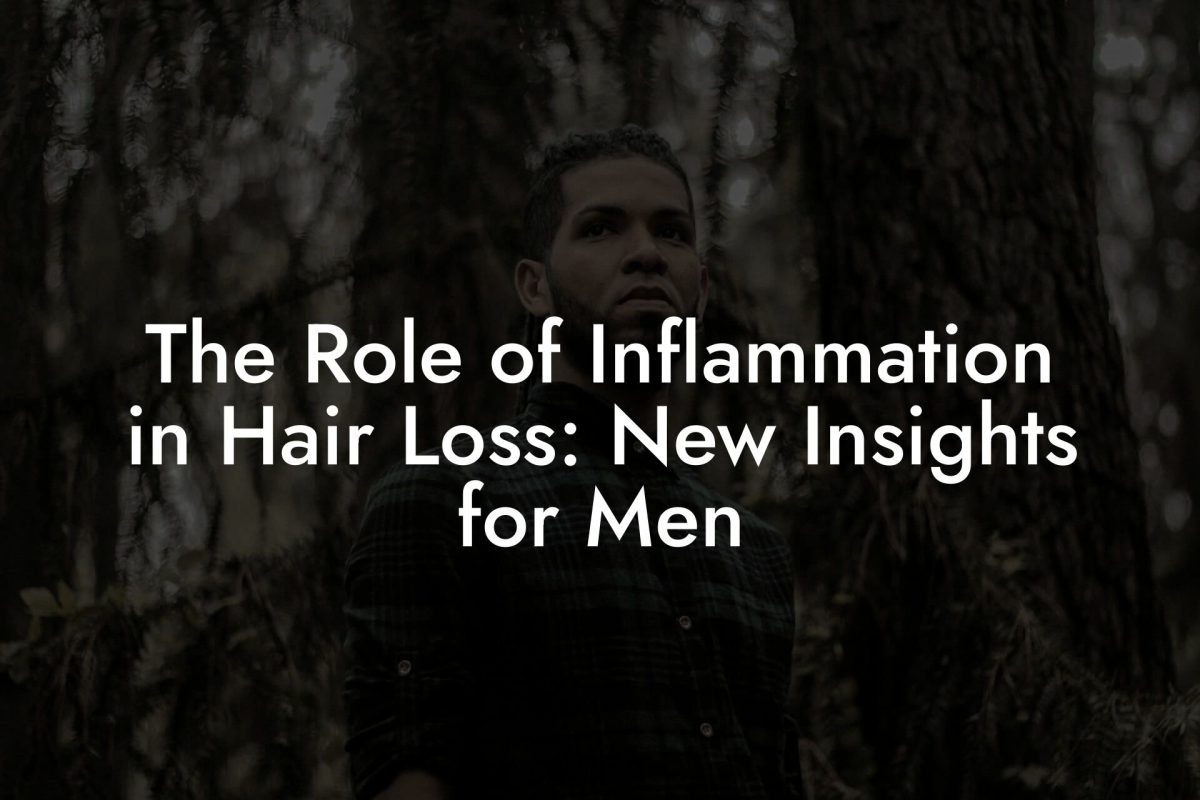Hair Loss Library
The Intersection of Genetics and Environment in Male Hair Loss
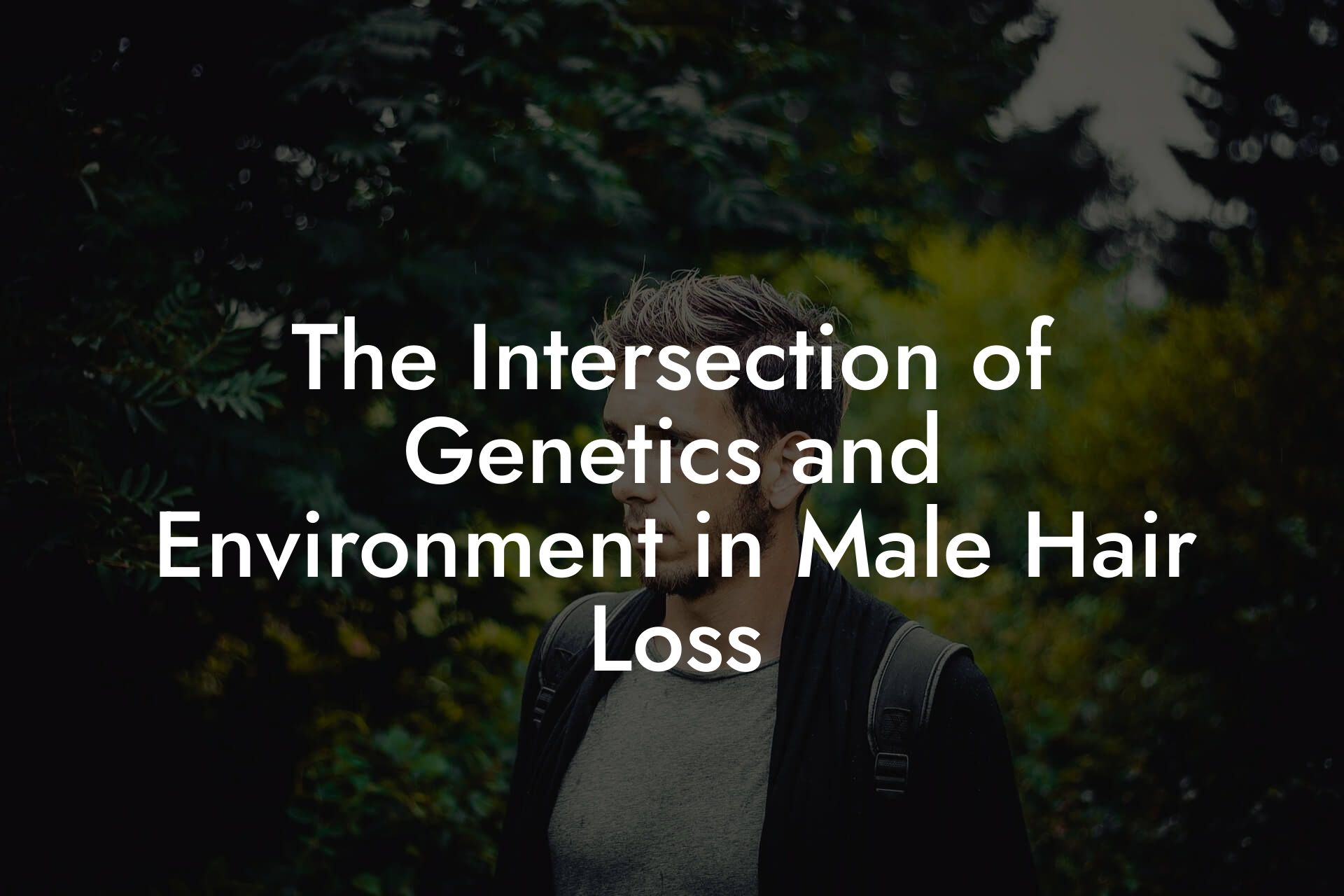
Ever wondered why your hairline seems to be staging its own disappearing act? Whether you're rocking a full mane or starting to notice that famed “widow’s peak” transformation, the mystery of male hair loss is a wild ride. It turns out that the drama behind balding isn’t solely down to your genes or your lifestyle—it’s an epic collision between your genetic blueprint and the quirks of your environment. Welcome to "The Intersection of Genetics and Environment in Male Hair Loss": a deep-dive into the science of what makes men lose hair, spiced up with a dash of humor and a whole lot of real talk.
Decoding the Battle Within: Genetics vs. Environment in Male Hair Loss
Picture your hair as the ultimate RPG character, equipped with a unique set of genes and an inventory that adapts to whatever the world throws at it. In the realm of male hair loss, both inherited blueprints (genetics) and external influences (environment) wage an ongoing war onscreen your scalp. While your genetic predisposition loads the initial parameters for hair growth, environmental factors like stress, diet, and even urban pollution play critical supporting roles.
In essence, male hair loss is not a one-trick pony. It’s the result of a complex interplay between what you were born with and how your daily choices shape your future follicular fortunes. And let’s be honest: understanding this can feel like trying to decipher a cryptic video game manual while balancing on a hoverboard. But stick with us—by the end, you'll be the boss in your own hair loss saga.
The Genetic Backstory: Inherited Factors & Androgenetic Alopecia
When we talk genetics in male hair loss, the headline story is androgenetic alopecia—otherwise known as male pattern baldness. This isn’t just a catchy term; it’s the end result of a highly orchestrated genetic process inherited from previous generations. Think of it as your DNA’s secret instruction manual for determining how thick or thin your hair might be in the coming decades.
The main culprit here? Your androgen receptors, which are coded in your genes. In some men, these receptors are hypersensitive to dihydrotestosterone (DHT), a hormone that can cause hair follicles to shrink, weaken, and eventually stop producing hair altogether. It’s as if your genetic code decided to pull a fast one on you, scripting a story where your hair slowly transforms into a valuable commodity of wisdom rather than a permanent accessory.
But here’s the twist: even if your genes set the stage for an eventual hair loss drama, the final act is often influenced by environmental factors. That’s right—your genetic predisposition might just be the opening scene in a blockbuster that unfolds based on your lifestyle choices and the world around you.
Environmental Influences: The Real-Life Game Changers
If genetics is the script for your hair’s destiny, the environment is the unpredictable co-star flipping the plot on you. From the air quality in your bustling city to daily stress levels and even your dietary choices, these factors can either boost your hair’s resilience or push it towards an early retirement.
Urban pollution, for instance, isn’t just a matter of lung health—it also stresses your scalp, leading to inflammation and oxidative damage. Over time, free radicals formed by environmental toxins can damage your hair follicles, accelerating the thinning process. And let’s not even get started on stress: that uninvited guest in every Gen Z and millennial’s life. Chronic stress triggers the release of cortisol, a hormone that can disrupt the natural hair growth cycle, leaving you with a scalp that feels less like a canvas for creativity and more like a barren wasteland.
Even dietary choices play a starring role. A diet packed with processed foods and lacking in essential nutrients can leave your hair starved for protein and vitamins—key ingredients in keeping your follicles in tip-top shape. It's a classic case of "you are what you eat," and if your meals are more fast food than farm-to-table organic, there's a chance your hair might take note.
When Worlds Collide: Epigenetics and the Interplay of Genes and Environment
Welcome to the world of epigenetics—a term that might sound like it belongs in a futuristic sci-fi flick, but it’s very much part of our everyday biological reality. Epigenetics is the study of how external factors can modify the way your genes behave without altering the underlying DNA sequence. In simple terms, while your genetic code lays out the blueprint for hair growth, your environment can send memo’s over how to use that blueprint.
Imagine your genes as a high-tech smartphone preloaded with amazing features. However, the apps you install on it (in this case, diet, stress levels, and lifestyle habits) determine how well those features function. Certain environmental triggers can cause gene expression changes that either promote healthy hair growth or hasten the onset of hair loss. For example, high levels of stress and poor nutrition might switch off some genes that are essential for maintaining robust hair follicles, while a balanced lifestyle could keep those genes humming along nicely.
In the context of male hair loss, this means that even if you’ve inherited a predisposition for baldness, it’s not necessarily a life sentence. By managing environmental factors, you have the potential to influence the “expression” of these genes, possibly delaying or even partially reversing the hair loss process. It’s like having an in-game cheat code that gives you a fighting chance—even if it doesn’t grant you invincibility.
Behind the Curtain: Scientific Research and Cutting-Edge Discoveries
The study of male hair loss is evolving by the minute, thanks to a surge of groundbreaking research and advanced technologies. Scientists are now peeking under the hood of hair biology to understand the molecular dance between genetics and environmental factors. Recent studies have highlighted the role of inflammatory markers and oxidative stress in hair loss, providing new insights into potentially effective treatments.
Researchers are also exploring the dynamic field of regenerative medicine, looking at how stem cells and platelet-rich plasma (PRP) can be harnessed to rejuvenate hair follicles. These innovative approaches are not only aiming to restore hair but also to empower men with personalized solutions that address both the genetic and environmental contributors to hair loss.
This is an exciting time in the world of hair science—think of it as the golden age of follicular innovation. With advancements in genomic medicine, dermatology, and biotechnology, the future looks promising for developing targeted therapies that could revolutionize how we approach male hair loss.
The Lifestyle Equation: Diet, Exercise, and Stress Management
Let’s get real: while you might not be able to rewrite your genetic code, you certainly can work wonders by tweaking your lifestyle. The connection between what you eat, how you move, and your overall stress levels plays a pivotal role in the health of your hair.
Nourish to Flourish
Just like a high-performance car requires premium fuel, your hair needs the right nutrients to thrive. Protein is one of the fundamental building blocks of hair, so integrating lean meats, fish, legumes, and plant-based proteins can give your follicles an energy boost. Equally important are vitamins like B-complex, vitamin D, and biotin—nutrients that support metabolism, cell regeneration, and overall hair strength.
Incorporating antioxidant-rich foods such as berries, leafy greens, and nuts can also help combat the oxidative stress inflicted by environmental aggressors. And don’t forget healthy fats; omega-3 fatty acids found in fish and flaxseeds work wonders in keeping your scalp moisturized and less prone to inflammation.
Break a Sweat
Exercise isn’t just about burning calories—it’s a full-body rejuvenation ritual. Regular physical activity improves blood circulation, ensuring that your hair follicles receive ample oxygen and essential nutrients. Whether it's hitting the gym or taking up yoga (which also doubles as a stress-busting practice), maintaining an active lifestyle is a powerful tool in your hair care arsenal.
Stress: The Unwanted Follicular Frenemy
Stress is the uninvited party crasher in the tale of hair loss. When modern life gets hectic, cortisol levels spike, potentially sabotaging the natural hair growth cycle. Learning effective stress management techniques is key. Meditation, deep breathing exercises, and even weekend digital detoxes can help lower stress levels, giving your hair a fighting chance.
Remember, while you might not always control external pressures, cultivating a calm inner mindset can mitigate their impact on your body—and on your strands.
Pioneering Treatments and Technological Breakthroughs
The future of male hair loss treatment is blending ancient wisdom with futuristic technology. As the understanding of genetics and environmental factors deepens, so does the innovation in treatment options. Today’s approaches combine traditional remedies with modern solutions, offering a more comprehensive strategy to combat hair loss.
One of the most talked-about treatments is minoxidil—a topical solution that has shown promising results for many men. But beyond that, there are exciting new frontiers. For example, low-level laser therapy (LLLT) has emerged as a non-invasive option to stimulate dormant hair follicles and encourage regrowth. It’s like giving your hair a power-up in an arcade game.
Advances in genetic testing are also helping men understand their personal risks. By analyzing specific genetic markers, specialists can predict how susceptible you might be to androgenetic alopecia. This personalized insight enables tailored treatment plans that blend preventive strategies with therapeutic interventions.
Furthermore, research into platelet-rich plasma (PRP) injections is pushing the envelope in regenerative medicine. PRP harnesses your own blood’s healing properties to stimulate hair growth at the cellular level. Combined with the latest in stem cell research, these developments are paving the way for a new era of customized hair restoration.
Personalizing Your Approach: Evaluate, Adapt, and Thrive
Navigating the labyrinth of male hair loss treatments can feel overwhelming. The key is personalization. No two men are exactly alike, and the factors contributing to your hair loss are likely as unique as your fingerprint. The best approach is to collaborate with experts who can help parse out the genetic and environmental variables at play.
Start by getting a thorough evaluation from a trusted hair loss specialist. This might involve a scalp analysis, genetic testing, and a discussion about your lifestyle and environmental exposures. With this information in hand, you can develop a plan that addresses your specific challenges—whether it includes medical treatments, changes in diet, stress reduction techniques, or lifestyle adjustments.
Remember: managing hair loss is not about accepting defeat; it’s about taking proactive steps to maintain your hair’s health and boost your confidence. With dedicated care and a personalized strategy, you can rewrite your hair’s story—even if the odds initially looked stacked against you.
Resources and Community Support: Your Next Steps
When dealing with the twin challenges of genetics and environmental influences, you’re not alone. The Mane Matrix community is here to empower you with expert insights, personal stories, and a network of like-minded individuals who understand the unique journey of male hair loss.
Connect with reputable resources that offer the latest research, treatment innovations, and lifestyle tips for managing hair loss. Explore online forums, social media groups, and virtual support communities where you can share experiences, ask questions, and celebrate victories—big or small.
Additionally, consider consulting with healthcare professionals who specialize in hair restoration. They can provide personalized recommendations, whether you’re exploring over-the-counter solutions, considering minimally invasive treatments, or venturing into the latest advancements in regenerative medicine.
Your journey to a healthier mane is a combination of informed choices, proactive lifestyle adjustments, and an unyielding commitment to self-care. The convergence of genetic insights and environmental management is a dynamic field—and it’s one that’s continually evolving. Join the conversation, educate yourself, and take the next step in building a strategy tailored just for you.
Expert Insights: Bridging the Gap Between Science and Daily Life
Let’s be clear: while scientific research can sound intimidating, understanding the fundamentals of genetics and environmental influence doesn’t require a PhD. It’s all about translating complex studies into actionable advice that can fit into your day-to-day routine—whether you’re managing a hectic work schedule or squeezing in workouts between Netflix binges.
Think of your genetic predisposition as a set of inherited weather patterns on your scalp. Some men might be prone to “genetic storms” that forecast thinning hair, while others may enjoy a more temperate climate of hair growth. But regardless of your genetic forecast, environmental interventions such as improving your diet, reducing stress, and protecting your scalp from pollutants can tip the scales in your favor.
Experts in dermatology and trichology (the study of hair and scalp) agree that a multi-pronged approach is the most effective strategy. By integrating lifestyle modifications, medical treatments, and cutting-edge technology, you can develop a balanced regimen that addresses both the genetic and environmental angles of hair loss.
Whether you’re a skeptic or a believer in the power of scientific innovation, one thing is for sure: the more you understand about the forces at play, the more control you have over your hair’s destiny. And that, my friend, is a power move worth making.
Community Voices and Success Stories
The journey of balancing genetics and environmental factors isn’t just about dry science—it’s also about the real-world experiences of everyday men who have navigated these challenges. Stories from the Mane Matrix community are filled with practical tips, encouragement, and an unwavering sense of camaraderie.
For instance, Michael, a 34-year-old tech consultant, discovered that his relentless work schedule and sleep deprivation were exacerbating his family’s history of hair thinning. By tweaking his bedtime routine, incorporating stress-relief practices, and consulting with a specialist on nutritional supplements, Michael managed to slow down the progression of his hair loss. His story is a testament to the fact that even if your genes set you on a rocky path, small shifts in your daily habits can turn the tide.
Similarly, Jamal, a 42-year-old creative professional, shared how integrating low-level laser therapy sessions along with mindful meditation not only improved his hair density but also boosted his overall confidence. The shared experiences of these men highlight that every strategy counts—whether it’s high-tech treatments or simple lifestyle tweaks.
Such success stories remind us that while the science behind hair loss can feel complex, the solutions are often surprisingly accessible. By embracing a holistic approach that considers both nature and nurture, you join a vibrant community of individuals who refuse to let genetics define their destiny.
FAQs: The Intersection of Genetics and Environment in Male Hair Loss
Wondering about some of the finer details of how genetics and your surroundings influence hair loss? Here are some of the most frequently asked questions to give you the complete picture.
1. How do genetics influence male hair loss?
Genetics play a crucial role in determining your predisposition to conditions such as androgenetic alopecia. If your family has a history of thinning hair or baldness, you might inherit sensitive androgen receptors that react strongly to DHT, leading to hair miniaturization.
2. Can my lifestyle affect my genetic risk for hair loss?
Absolutely. While you can’t change your genes, environmental factors like stress, diet, and exposure to pollutants can affect how those genes are expressed. By adopting healthy habits, you may help mitigate the impact of your genetic predisposition.
3. What role does epigenetics play in hair loss?
Epigenetics refers to changes in gene expression that occur due to environmental influences. In male hair loss, factors like stress and diet can modify how genes involved in hair growth are expressed, potentially accelerating or slowing the loss process.
4. Are there effective treatments that target both genetics and environmental factors?
Yes, modern treatments often combine topical solutions like minoxidil with lifestyle modifications and, in some cases, advanced therapies such as low-level laser therapy or platelet-rich plasma (PRP) injections. This integrated approach addresses both your genetic predisposition and the environmental stressors affecting your hair.
5. Can dietary changes really impact my hair health?
Definitely. A nutrient-rich diet that supplies antioxidants, proteins, and essential vitamins supports hair follicle health and can counteract some of the negative effects of environmental stressors.
6. How important is stress management in preventing hair loss?
Stress is a significant factor—as it not only impacts your overall health but also influences hormonal balance and scalp inflammation. Incorporating stress management techniques like meditation, regular exercise, and sufficient sleep can help protect your hair.
7. Should I consider genetic testing to understand my hair loss risk?
Genetic testing can provide valuable insights into your predisposition for hair loss, allowing you to tailor a preventative or therapeutic strategy that addresses both inherited and environmental factors.
8. Can I reverse hair loss if I focus on lifestyle changes?
While it may not be possible to completely reverse genetically driven hair loss, combining lifestyle changes with medical treatments can improve hair density and overall scalp health, potentially slowing the progression.
9. How can I determine which treatment is right for me?
Consulting with a hair loss specialist who can perform a detailed analysis of both your genetic background and lifestyle factors is the best way to determine a personalized treatment plan.
10. Is it ever too late to start managing hair loss?
Not at all. Whether you’re in your twenties or fifties, taking proactive steps can make a difference. Early intervention tends to yield the best results, but it’s never too late to adopt a strategy that works for you.
Your Next Steps on the Road to a Healthier Mane
Understanding the intersection of genetics and environment in male hair loss is your first step toward reclaiming control over your hair health. Equipped with insights into how your inherited traits and daily habits interact, you’re now ready to embark on a proactive journey that blends science, lifestyle, and the latest innovations.
Remember, your hair’s future isn’t solely predetermined by your genes; it’s heavily influenced by what you do each day—from the food you eat and the stress you manage to the treatments you choose. Embrace this knowledge, connect with experts, and join communities like Mane Matrix that celebrate every small victory along the way.
Whether you’re in the early stages of hair shedding or already noticing significant thinning, the tools and insights discussed here can help you craft a strategy that fits your unique needs. Take control, stay informed, and know that every decision you make brings you one step closer to a healthier, more resilient mane.
Your hair loss journey is a testament to the convergence of nature and nurture—each strand tells a story of genetics interwoven with the backdrop of your lifestyle. Celebrate the progress, experiment with new solutions, and, most importantly, keep your sense of humor intact. After all, confidence and a positive mindset are as essential to your hair’s vitality as any treatment regimen.
As you navigate this ever-evolving field, remember that innovation, community support, and your own proactive energy can turn the tide in your favor. The future is bright—and your mane might just be ready for its next epic chapter.
If you loved this article... Dive deeper into the world of mens hair loss with our most popular sections. If there is anything you think is missing or anything you would love for us to write about, just give us a shout.
Why Am I Losing Hair? Unpacking the Science Behind Men’s Hair Loss
The Ultimate Guide to Male Pattern Baldness: Causes and Clues
Hormones & Hair: How Testosterone Impacts Hair Loss in Men
Genetics vs. Lifestyle: What’s Really Causing Your Hair Loss?
Stress and Strands: Exploring the Link Between Anxiety and Hair Loss
Decoding Androgenetic Alopecia: What Every Man Needs to Know
How Aging Affects Your Hair: Understanding the Natural Process
The Role of Diet in Hair Health: Nutrients That Prevent Hair Loss
Environmental Factors: How Pollution and Toxins Trigger Hair Loss
Medical Conditions and Hair Loss: What’s Normal and What’s Not?
The Impact of Medications on Men’s Hair: What You Should Ask Your Doctor
Unraveling Scalp Health: Signs Your Scalp Needs Extra Care
Hair Loss Myths Busted: Separating Fact from Fiction
The Role of Inflammation in Hair Loss: New Insights for Men
Sleep and Hair Regrowth: Can a Good Night’s Rest Save Your Hair?
How Smoking and Alcohol Affect Men’s Hair: A Deep Dive
Understanding Diffuse Thinning vs. Pattern Baldness in Men
Innovative Research: The Future of Hair Loss Studies for Men
Spotting Early Signs: How to Identify Hair Loss Before It’s Too Late
Autoimmune Disorders and Hair Loss: What Men Need to Know
The Science Behind Hair Follicle Miniaturization Explained
How Your Lifestyle Choices Impact Your Hair’s Future
Understanding the Hair Growth Cycle: What Every Man Should Know
When to Worry: Recognizing Abnormal Hair Loss Patterns in Men
The Intersection of Genetics and Environment in Male Hair Loss





